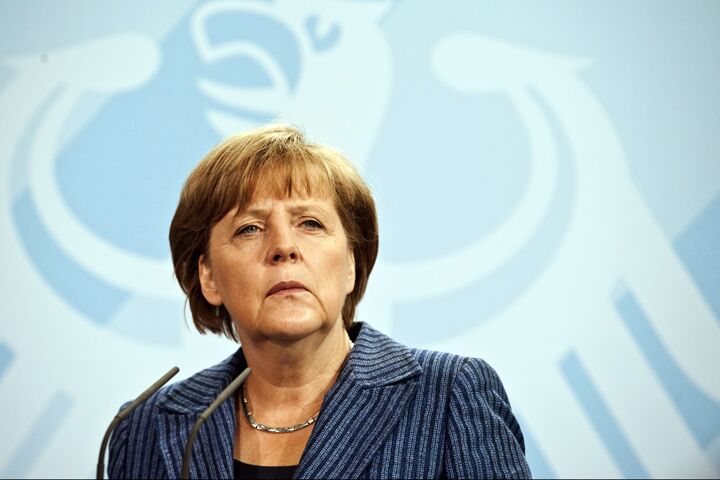
Germany Furious After Iran Blocks Merkel’s Plane
Iran stopped German Chancellor Angela Merkel’s plane as it attempted to cross Iranian airspace on Tuesday, instigating a diplomatic row.
Merkel’s plane was flying to India when it received a message that Iran rescinded its permission to traverse its territory. The plane was forced to circle for two hours in Turkey before receiving permission to cross.
Merkel’s spokesman, Steffen Seibert, said the incident was “unusual to say the least” and that “we have never experienced anything like this before.”
Germany’s Foreign Minister Guido Westerwelle was less circumspect. “Iran’s move to hinder the chancellor’s trip is absolutely unacceptable,” he fumed. “It shows a lack of respect towards Germany that we will not accept.”
Westerwelle continued: “[S]uch a breach of international conventions will in no way be tolerated by Germany.”
Christoph Heusgen, Merkel’s security and foreign-policy adviser, led the “intense diplomatic interventions” between Berlin and Tehran from on board Merkel’s plane, according to one German paper and an unnamed German official.
The incident shows a growing rift between Germany and Iran.
Despite U.S. and EU sanctions, until recently Germany was one of Iran’s most important trade partners. For years, its multinational corporations blatantly traded with the blacklisted regime, even helping it develop its “civilian” nuclear energy program. German banks especially were complicit in helping Iran avoid sanctions and make international purchases of equipment and technology.
However, this relationship is rapidly changing. Germany is going from one of Iran’s most important aiders to one of its greatest enemies—and Iran’s snub of Merkel is proof that Tehran is not happy about it.
Last year, Germany was the third-largest exporter to Iran—growing by low double digits over the previous year. However, it seems that German politicians may actually be serious about cracking down on Iran. Giant German corporations such as Siemens and ThyssenKrupp appear to have finally bowed to political pressure and are either moving out of Iran or have announced plans to do so upon completion of contracts.
Those companies not immediately abandoning Iran are finding it more difficult to conduct business. Those who wish to circumvent restrictions are now forced to use third-party countries, such as Dubai, to avoid sanctions. However, this costs extra time and money for both German and Iranian firms and will eventually lead to German companies losing contracts to competitors in China and elsewhere.
Perhaps the biggest sign that Germany is finally cracking down on companies trading with Iran was Angela Merkel’s announcement to shut down the Hamburg-based European-Iranian Trade Bank (eih).
On May 3, Angela Merkel intervened to stop billions of euros of Indian oil payments from reaching Iranian accounts via the eih. This did not win her any friends in the Islamic Republic.
According to the Handelsblatt business daily, Germany will no longer authorize the Bundesbank to approve any payments headed to Iran via the eih. Further, Merkel’s abandonment of the bank allowed the European Union to officially sanction the bank.
The eih bank’s role in facilitating commerce with Iran had turned the city of Hamburg into the European financial center of the Islamic Republic of Iran, according to the Weekly Standard. As other European nations followed America’s lead on sanctioning Iran, it eliminated many of the usual routs of trade. Thus, many European companies still wishing to do business in Iran did so through the Germany-based eih bank and other sanction-busting banks like it.
According to the U.S. Treasury Department’s Stuart Levey, the eih was one of the “few remaining access points to the European financial system.” Its closure will be a big blow to Iran.
Yet even with each additional round of sanctions, Iran continues to push forward with its nuclear development and anti-West holy war. And judging by Iran’s treatment of Merkel, the sanctions may actually be starting to sting a bit.
Iran, however, is not without options to retaliate against the West. It has terrorist organizations Hezbollah and Hamas on the payroll, and it is holding the West hostage in Afghanistan and Iraq. As Iran begins to lash out, it will push the limits of European patience.
To see what the Bible says Europe’s response will be, read “Europe Must Reclaim the Mediterranean.”
